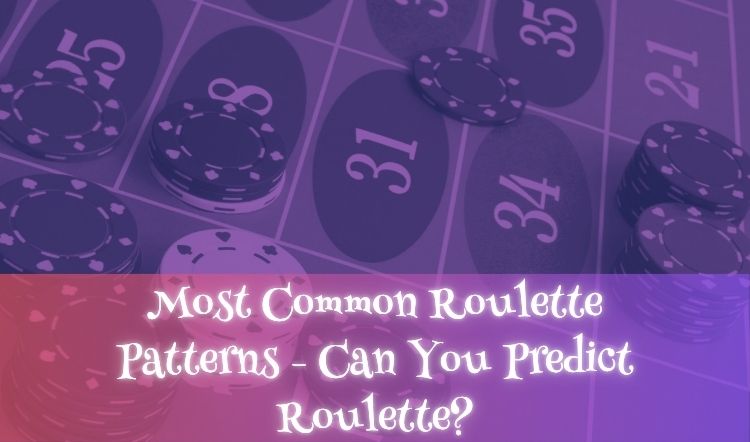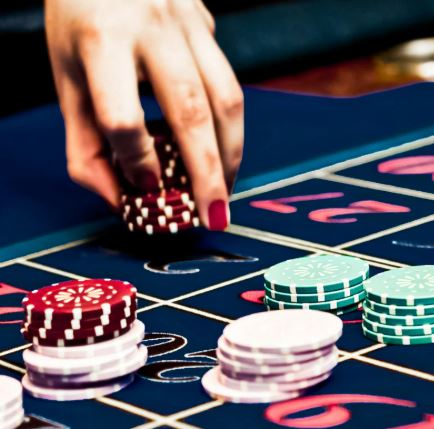
Roulette has been played for centuries and remains popular due to its simple rules and easy-to-follow gameplay. Although it’s widely recognised as a game of chance, some players believe there may be patterns that can help predict where the ball will land.
In this blog post, we’ll examine this idea more closely and consider whether there’s any truth to the notion of spotting patterns in roulette. Read on to learn more.
Is There Any Pattern To Roulette?
Some roulette players can be quite superstitious, often relying on personal beliefs or previous outcomes to guide their betting choices. It’s not uncommon for players to think that patterns exist within the game that could help them anticipate future results.
In reality, roulette is entirely governed by chance. Each spin is independent, and the outcome is random, meaning there is no reliable method for predicting where the ball will land.
Still, players sometimes observe that certain numbers or sections of the wheel seem to appear more frequently. These are often referred to as "hot numbers." Conversely, "cold numbers" are those that haven’t appeared for some time. While these patterns might seem significant, they are purely coincidental. The probability for each number remains the same with every spin.
Can You Mathematically Beat Roulette?
Some players believe that roulette can be beaten through mathematical strategies, but this is a common misconception. The game is built around a house edge, and the probability of each outcome remains fixed, regardless of any system or approach used.
Although there are strategies intended to help manage gameplay—such as spreading bets across multiple numbers or following structured betting systems like the Martingale or Fibonacci—these do not influence the actual odds of the game. In fact, relying on such systems can lead to significant losses, particularly during extended losing streaks.
How Often Does 0 Come Up In Roulette?
The green Zero holds an interesting place in roulette, as it is neither red nor black and falls outside the usual even or odd bets. In European roulette, which features a single zero, the odds of the ball landing on 0 are around 1 in 37, or approximately 2.7%. In American roulette, which includes both 0 and 00, the odds increase to about 1 in 19 or 5.26%.
The presence of zero is what gives the house its edge, as it slightly reduces the chances of standard bets winning. However, like any other number on the wheel, zero appears at random. Players have no way of knowing when it will come up, and past outcomes do not influence future spins.
What Are Hot Numbers In Roulette?
Many players pay close attention to so-called "hot numbers"—those that seem to appear more often than others over a series of spins. Similarly, some look for "cold numbers," believing that numbers which haven’t come up in a while are somehow due to appear.
While these patterns might seem meaningful, every spin in roulette is entirely independent. Each number has the same chance of appearing, regardless of what has happened previously. The idea that certain numbers are more or less likely to come up based on recent results is a common misconception. These patterns may appear convincing, but they are purely coincidental and not a reliable basis for placing bets.
What Are The Best Numbers To Play?
In roulette, there are no “best numbers” that offer a higher chance of winning. Each number on the wheel has the same probability of appearing on every spin, regardless of previous outcomes.
Some players may have personal favourites—perhaps based on birthdays or past experiences—but these selections are purely down to individual preference. While choosing familiar or meaningful numbers may add a personal touch to the game, it does not influence the result.
Ultimately, roulette remains a game of chance, and no particular number is more likely to come up than another.
How Many Numbers Should You Bet On?
If you’re interested in playing roulette, the number of bets you place will often depend on your personal approach and preferences. For instance, betting on a single number offers a high potential payout—typically 35 to 1 —but the chances of winning are lower.
—but the chances of winning are lower.
Alternatively, betting on larger groups of numbers, such as red or black, or even or odd, increases the likelihood of winning, though the potential payouts are smaller, usually around 1 to 1.
By understanding the different types of bets and their odds, you can make more informed decisions about how to play. Ultimately, how many numbers you choose to bet on comes down to what suits your style and what you find most enjoyable.
Conclusion
Roulette is fundamentally a game of chance, and there is no mathematical formula or pattern that can consistently predict the outcome. Although players might notice streaks or numbers that appear more often, these occurrences are random and do not influence future spins.
The best approach is to familiarise yourself with the odds, make informed decisions, and play responsibly. Above all, it’s important to remember that there is no guaranteed way to win at roulette.
*All values (Bet Levels, Maximum Wins, etc.) mentioned in relation to this game are subject to change at any time. Game features mentioned may not be available in some jurisdictions.
**The information provided in this blog is intended for educational purposes and should not be construed as betting advice or a guarantee of success. Always gamble responsibly.
